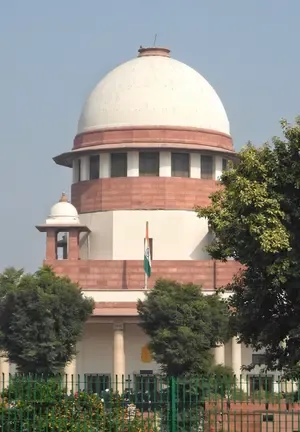Will the SC Address the PIL for Allied Healthcare Law Implementation?

Synopsis
Key Takeaways
- Supreme Court to review PIL on NCAHP Act.
- Ongoing regulatory void affects healthcare quality.
- States have not formed State Allied and Healthcare Councils.
- The Act aims to standardize qualifications and practices.
- International examples show the benefits of regulation.
New Delhi, July 29 (NationPress) The Supreme Court has agreed to review a public interest litigation (PIL) initiated by the Indian Association of Physiotherapists (IAP) that calls for the effective enforcement of the National Commission for Allied and Healthcare Professions Act, 2021 (NCAHP Act). A bench led by Chief Justice of India (CJI) B.R. Gavai and K. Vinod Chandran acknowledged the concerns raised by senior advocate Anindita Pujari regarding the ongoing regulatory void in India's allied healthcare sector, despite the NCAHP Act being enacted more than four years ago.
The CJI Gavai-led bench has issued notices to the Central Government, all state governments, union territories, the National Commission for Allied and Healthcare Professions, the University Grant Commission (UGC), and the All India Council for Technical Education, and has linked this case with a similar pending petition.
Filed under Article 32 of the Indian Constitution by advocate Rohit Kumar, the writ petition asserts that since the NCAHP Act took effect on May 25, 2021, numerous provisions remain unenforced. Particularly, many states have not yet established their respective State Allied and Healthcare Councils, resulting in discrepancies in professional standards, qualifications, and licensure procedures across the nation.
The petition underscores that this ongoing lack of regulation is detrimental to the quality of healthcare services and the professional status of countless allied health professionals, including physiotherapists, speech-language pathologists, radiologic technologists, and medical lab technologists, all of whom play crucial roles in contemporary healthcare delivery.
It states, “The absence of implementation of the NCAHP Act has led to significant disparities in professional qualifications and ambiguous scopes of practice across the healthcare sector, adversely affecting the quality of healthcare services in India.”
The PIL also notes that nations such as the UK, US, Australia, and even Nepal have successfully established comprehensive regulatory frameworks for allied healthcare professions.
“In stark contrast, India has unfortunately failed to create such regulatory bodies, resulting in inferior quality of paramedical education, diagnostic, and clinical services in both private and public healthcare institutions, due to the lack of statutory requirements for accreditation, registration, and licensing in the relevant professional domains,” the petition argues.
It further claims that both the Union and state governments have not commenced the certification and licensing processes mandated by the NCAHP Act.
The PIL seeks a writ of mandamus compelling the Centre, states, and pertinent regulatory entities to fully implement the NCAHP Act, including the establishment of councils and the enforcement of standardized norms.










